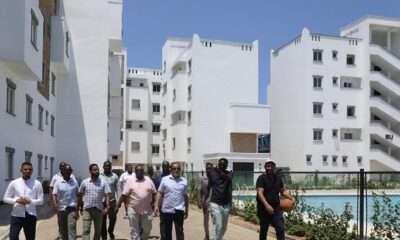Residential Projects
New York firm to begin work on Sh5bn Kenyatta University hostel
Africa Integras has concluded funding talks with financiers – paving way for the launch of the project.

Construction of an ultra-modern hostel in Nairobi for Kenyatta University students is set to begin in June, after the Sh5.1 billion project secured long-term financing.
New York-based private equity firm Africa Integras, the project lead, has finally concluded funding negotiations with international financiers – paving way for the groundbreaking mid this year.
The 10,000-capacity hostel project involves construction of a student lodging complex on a 20-acre piece of land in the university’s Kahawa main campus to house 9,350 undergraduates and 500 post-graduate students, with 150 bed-sitters being primed for students with special needs.
The project will be undertaken on a build-operate-transfer model where an investor puts up a facility and collects rent for 15 to 20 years before handing the property back to the owners.
Africa Integras, which invests in developing education infrastructure projects, won the tender to lead the public-private partnership (PPP) investment in 2014 and signed a contract with KU in June 2015.
Under the deal, a consortium led by Africa Integras with local partners Triad Architects, EPCO contractors and Broll Kenya Facility Managers will construct and operate the hostel for 20 years to recoup their investment.
“This type of PPP project will ease the cost of accommodation for students, making university education affordable and could soon be replicated across Kenya as public universities can only accommodate a paltry 25 per cent of their student populations,” said Dr Paul Gachanja, who is leading the project on behalf of KU.
The hostel, which is expected to be completed in two years, is the first major infrastructural project since the public-private partnerships construction model was entrenched into law in 2013.
Local universities are grappling with a chronic shortage in accommodation for students due to the rising number of Kenyans seeking to pursue higher education.
KU, for example, now boasts an undergraduate population of 74,000 – with only 10,000 currently housed at 21 hostels.
To address housing problems, public universities and colleges are increasingly scouting for partners to build and operate hostels for their growing number of students.
READ: Boom time for hostel investors in Kenya
Jomo Kenyatta University of Science and Technology (JKUAT), Egerton, Maseno, Kenya School of Government and South Eastern Kenya University were in 2014 cleared by the government to finance construction of their hostels through public-private partnerships. Like the KU hostel complex, most of these projects will be undertaken on a build-operate-transfer model.












